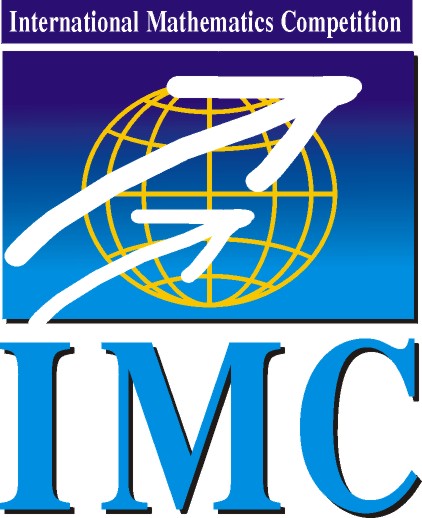
|
International Mathematics Competition
|
IMC 2026 |
| Information | Results | Problems & Solutions |
IMC2016: Problems on Day 1
1. Let $f\colon [a,b]\to\mathbb{R}$ be continuous on $[a,b]$ and differentiable on $(a,b)$. Suppose that $f$ has infinitely many zeros, but there is no $x\in(a,b)$ with $f(x)=f'(x)=0$.
(a) Prove that $f(a)f(b)=0$.
(b) Give an example of such a function on $[0,1]$.
Proposed by Alexandr Bolbot, Novosibirsk State University
2. Let $k$ and $n$ be positive integers. A sequence $(A_1,\ldots,A_k)$ of $n\times n$ real matrices is preferred by Ivan the Confessor if $A_i^2\ne 0$ for $1\le i \le k$, but $A_iA_j=0$ for $1\le i,j\le k$ with $i\ne j$. Show that $k\le n$ in all preferred sequences, and give an example of a preferred sequence with $k=n$ for each $n$.
Proposed by Fedor Petrov, St. Petersburg State University
3. Let $n$ be a positive integer. Also let $a_1,a_2,\ldots,a_n$ and $b_1,b_2,\ldots,b_n$ be real numbers such that $a_i+b_i>0$ for $i=1,2,\ldots,n$. Prove that $$ \sum_{i=1}^n \frac{a_ib_i-b_i^2}{a_i+b_i}\leq \frac{\sum\limits_{i=1}^n a_i \cdot \sum\limits_{i=1}^n b_i -\left(\sum\limits_{i=1}^n b_i\right)^2}{\sum\limits_{i=1}^n (a_i+b_i)}. $$
Proposed by Daniel Strzelecki, Nicolaus Copernicus University in Torún, Poland
4. Let $n\ge k$ be positive integers, and let $\mathcal{F}$ be a family of finite sets with the following properties:
(i) $\mathcal{F}$ contains at least $\binom{n}{k}+1$ distinct sets containing exactly $k$ elements;
(ii) for any two sets $A,B\in \mathcal{F}$, their union $A\cup B$ also belongs to $\mathcal{F}$.
Prove that $\mathcal{F}$ contains at least three sets with at least $n$ elements.
Proposed by Fedor Petrov, St. Petersburg State University
5. Let $S_n$ denote the set of permutations of the sequence $(1,2,\dots,n)$. For every permutation $\pi=(\pi_1,\dots,\pi_n)\in S_n$, let $\mathrm{inv}(\pi)$ be the number of pairs $1\le i\lt j\le n$ with $\pi_i\gt \pi_j$; i.e. the number of inversions in $\pi$. Denote by $f(n)$ the number of permutations $\pi\in S_n$ for which $\mathrm{inv}(\pi)$ is divisible by $n+1$.
Prove that there exist infinitely many primes $p$ such that $f(p-1)\gt \dfrac{(p-1)!}p$, and infinitely many primes $p$ such that $f(p-1)\lt \dfrac{(p-1)!}p$.
Proposed by Fedor Petrov, St. Petersburg State University
© IMC